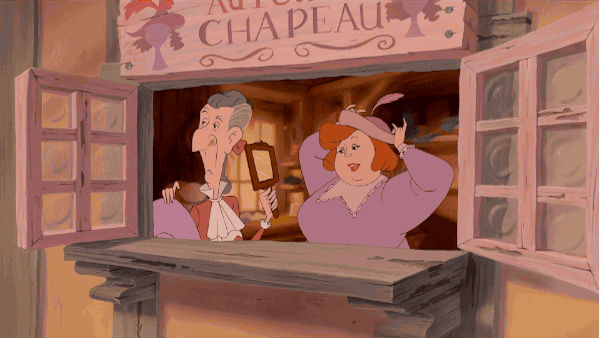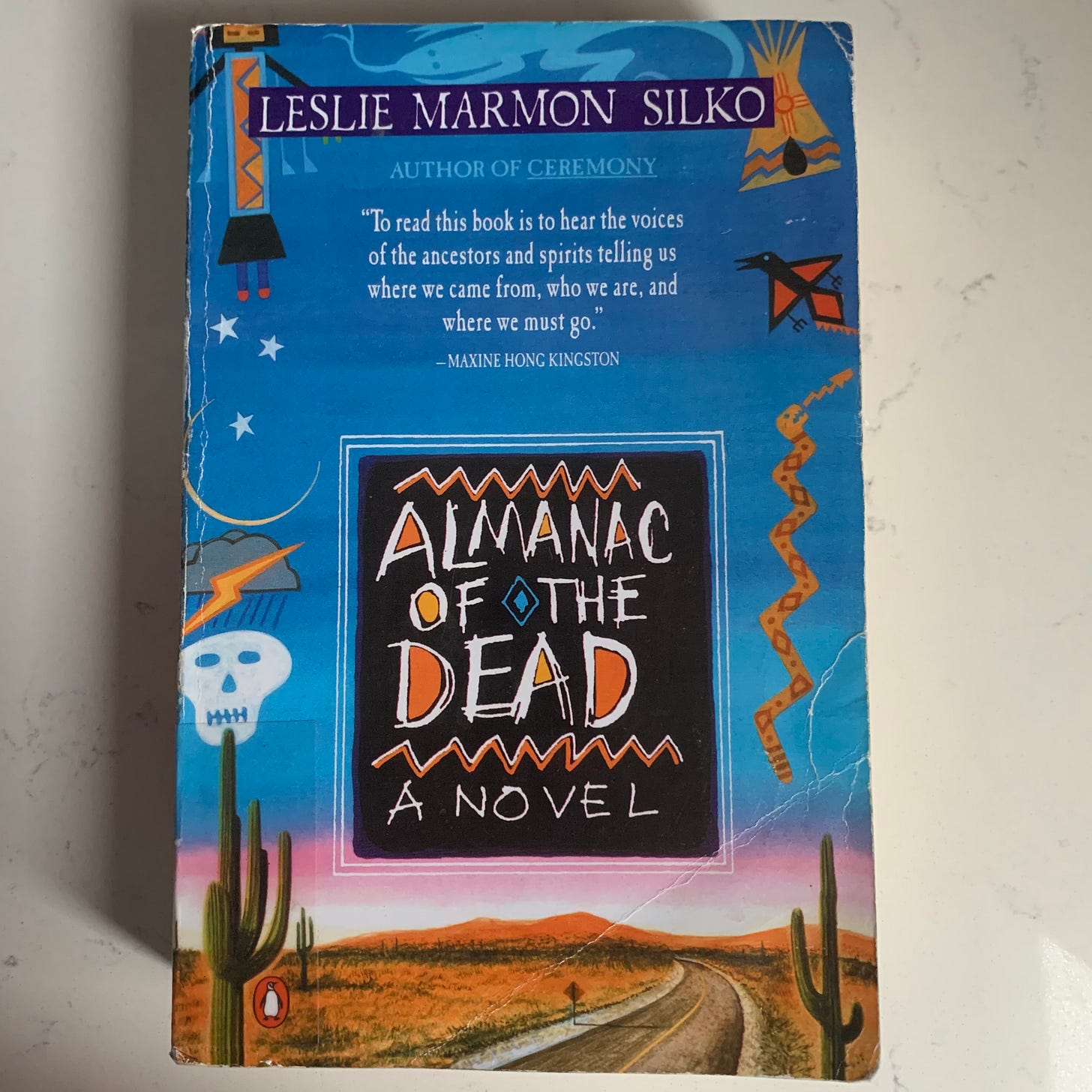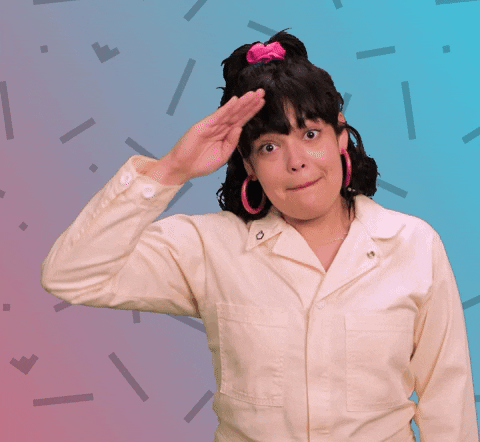'Milkman' by Anna Burns
'The truth was dawning on me how terrifying it was not to be numb, but to be aware, to have facts, retain facts, be present, be adult.' — Review #151
What a year these last two weeks have been. I hope you all are doing OK. I’m angry, stressed and worried, but I’m hanging in there and (mostly) resisting the urge to:
With everything that’s going on, I’m amazed I could focus enough to finish this book. But when I did, I found a little gem in the acknowledgements (always read the acknowledgements!). The author writes: ‘Thanks to me.’ I gasped. What a flex! Is it unseemly to thank yourself for accomplishing something? Even if your labor resulted in a 2018 Man Booker Prize? I turned this around in my head and have concluded that self-gratitude is appropriate, and the necessary energy for 2021. Everybody had a hard year in 2020, everybody is going through some things, and everybody deserves to give themselves some credit, so I say go ahead, friends, and be like Anna Burns, and thank yourselves for your pluck, your patience and your perseverance. I’m like:
I found ‘Milkman’ in a pile at Mercer Street Books and didn’t realize when I started reading it how relevant it would be to current events. It’s about how rumors, gossip and lies become weaponized into physical and psychological violence that hurt women and polarize communities. Sound familiar? Here’s the cover:
If you enjoy this review, click the ♥️ above. New here?
The story is set in the 1970s in an unnamed place that, based on the author’s origin, I assume is Northern Ireland and an unnamed city that I assume is Belfast during what I assume is the height of The Troubles. The city is divided along religious lines and prone to bombings and other sectarian violence between paramilitary forces and the state. The protagonist is an unnamed 18-year-old woman who unintentionally attracts her neighborhood’s ire for her habit of reading while walking, like:
She draws even more unwanted attention when she is approached by the milkman, a 40-something paramilitary type with this monicker because he drives a vehicle akin to a milk truck. He sees her on one of her walks and pulls over to offer her a lift, which she refuses. But this encounter activates the community rumor mill, which concludes she is carrying on an affair with the milkman and getting involved with ‘renouncers’ who are at war with the other-religion community ‘over the border’ from the country ‘over the water.’ Her every move now draws scrutiny, and she is chastised by her mother, older sisters and friends not only because of her alleged relationship with the milkman, but also because of her reading-walking habit. Because she blocks out the world with her books, and doesn’t get involved in the politics of the moment or push back on the milkman rumor, the community decides she’s too aloof and too haughty. She believes trying to counter the rumors will only provoke the gossip mongers. But the milkman rumor is their way of trying to get her to fall in line, so her silence only eggs them on and creates space for them to invent and believe any crazy thing, up to the point of them thinking:
Few of the characters have proper names. The protagonist, who is one of roughly 10 siblings, is sometimes referred to as ‘middle sister.’ She is dating ‘maybe-boyfriend,’ confides in ‘longest friend’ and is briefly poisoned by ‘tablets girl.’ I appreciated this storytelling choice because it made it easier to keep track of the characters. I also like the way it makes the point that in this community individuals are not self-defining, their identity is projected onto them. But middle sister has three younger siblings, known as ‘wee sisters,’ who are my favorite characters. They are precocious, inquisitive and dazzled by history, literature and facts. Although they are never named, their presence and actions suggest that the future might not be defined by insular and backward thinking, and that we can get beyond the spiraling cynicism of:
Burns writes beautifully, almost to a fault. The protagonist’s narration often includes long tangents of seemingly effortless sentences that collect in massive paragraphs, as you’ll see below. Looking at pages full of unbroken text was daunting and sometimes sent me to doomscrolling on my phone. When I did settle in for a reading session, it often felt like a long car ride: I was happy to be on the journey, but was frequently in danger of dozing, like:
I liked this novel, and I’m glad I read it, but I was happy when it ended. It was stressful to read about the damage lies cause when you don’t push back on them after days of seeing on TV the damage lies cause when you don’t push back on them. ‘Milkman’ is definitely worth a read, but maybe wait until the current unrest settles down.
How it begins:
The day Somebody McSomebody put a gun to my breast and called me a cat and threatened to shoot me was the same day the milkman died. He had been shot by one of the state hit squads and I did not care about the shooting of this man. Others did care though, and some were those who, in the parlance, ‘knew me to see but not to speak to’ and I was being talked about because there was a rumour started by them, or more likely by first brother-in-law, that I had been having an affair with this milkman and that I was eighteen and he was forty-one. I knew his age, not because he got shot and it was given by the media, but because there had been talk before this, for months before the shooting, by these people of the rumour, that forty-one and eighteen was disgusting, that twenty-three years’ difference was disgusting, that he was married and not to be fooled by me for there were plenty of quiet, unnoticeable people who took a bit of watching. It had been my fault too, it seemed, this affair with the milkman. But I had not been having an affair with the milkman. I did not like the milkman and had been frightened and confused by his pursuing and attempting an affair with me. I did not like first brother-in-law either. In his compulsions he made up things about other people’s sexlives. About my sexlife. When I was younger, when I was twelve, when he appeared on my eldest sister’s rebound after her long-term boyfriend got dumped for cheating on her, this new man got her pregnant and they got married right away. He made lewd remarks about me to me from the first moment he met me — about my quainte, my tail, my contry, my box, my jar, my contrariness, my monosyllable — and he used words, words sexual, I did not understand. He knew I didn’t understand them but that I knew enough to grasp they were sexual. That was what gave him pleasure. He was thirty-five. Twelve and thirty-five. That was a twenty-three years’ difference too.
My rating:
‘Milkman’ by Anna Burns was published by Faber & Faber Limited, London, and by Graywolf Press in 2018. 348 pages. $14.72 at BookShop.org.
Disagree with my review? Let me know:
Review #150: ‘Luster’ by Raven Leilani
Support BoG: Twitter | Instagram | Goodreads
Contact me: booksongif@gmail.com.
Before you go:
Read this: I stayed up past my bedtime recently engrossed in ‘These Precious Days’ by Ann Patchett in Harper’s. It’s a beautiful story about friendship, love, cancer, coronavirus, art and psilocybin. Tom Hanks is in it. So are glimpses into Patchett’s writing process. It’s a long read, but worth it.
Read this, too: I’ve been thinking a lot over the past few months about social media and my presence on it, both personally and for Books on GIF. I dumped Facebook over the summer and don’t miss it at all. But my relationship with Twitter and Instagram is complicated. This edition of Alicia Kennedy’s newsletter called ‘On Online’ spoke to my anxieties and concerns about being online, and I have been thinking about it a lot since.
See this: The United States Postal Service is honoring Ursula K. Le Guin with a postage stamp. Take a look:
 We are delighted to announce that the 33rd stamp in the US Postal Service Literary Arts series honors Ursula. Stamp release will be later this year, date TBD. From then on, all our letters will be three ounces! Thank you @USPS for this distinction. ow.ly/knY750D9SXb
We are delighted to announce that the 33rd stamp in the US Postal Service Literary Arts series honors Ursula. Stamp release will be later this year, date TBD. From then on, all our letters will be three ounces! Thank you @USPS for this distinction. ow.ly/knY750D9SXb
Unless I’m mistaken, it looks like behind her are Estraven and Genly Ai out on the ice in ‘The Left Hand of Darkness.’ That’s one of my favorite books, and one of my favorite scenes—it is the last time a book nearly made me cry. I gotta get a sheet of these stamps!
Thanks for reading, and thanks especially to Donna for editing this newsletter!
Until next time,
MPV
Review #150 used GIFs by @Phillustrations from Giphy.com.
Books on GIF newsletters with most ♥️s
















The review made me to add the book in the want to read list. I dutifully added it in Good Reads
I've been thinking a lot about Milkman this week. I live in D.C. and have been watching as the Green Zone grows ever larger, and checkpoints become the norm.
I really enjoyed Milkman. Interestingly, me and one other person in my book club read it on a long flight. We had a way different experience than members who tried to pick it up and put it down.